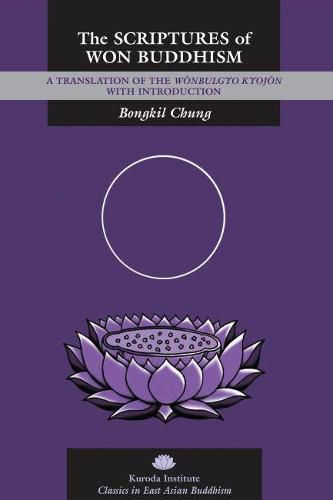Readings Newsletter
Become a Readings Member to make your shopping experience even easier.
Sign in or sign up for free!
You’re not far away from qualifying for FREE standard shipping within Australia
You’ve qualified for FREE standard shipping within Australia
The cart is loading…






Won Buddhism, one of the major religions of modern Korea, was established in 1916 by Pak Chung-bin (1891-1943), later known as Sot'aesan. In 1943 Sot'aesan published a collection of Buddhist writings, the Correct Canon of Buddhism (Pulgyo chongjon), which included the doctrine of his new order. Four years later, the second patriarch, Chongsan (1900-1962), had the order compile a new canon, which was published in 1962. This work, translated here as The Scriptures of Won Buddhism (Wonbulgyo kyojon), consists of the Canon (a redaction of the first part of the Pulgyo chongjon) and the analects and chronicle of the founder known as the Scripture of Sot'aesan. The present translation incorporates critical tenets from the 1943 Canon that were altered in the redaction process and offers persuasive arguments for their re-inclusion.
$9.00 standard shipping within Australia
FREE standard shipping within Australia for orders over $100.00
Express & International shipping calculated at checkout
Won Buddhism, one of the major religions of modern Korea, was established in 1916 by Pak Chung-bin (1891-1943), later known as Sot'aesan. In 1943 Sot'aesan published a collection of Buddhist writings, the Correct Canon of Buddhism (Pulgyo chongjon), which included the doctrine of his new order. Four years later, the second patriarch, Chongsan (1900-1962), had the order compile a new canon, which was published in 1962. This work, translated here as The Scriptures of Won Buddhism (Wonbulgyo kyojon), consists of the Canon (a redaction of the first part of the Pulgyo chongjon) and the analects and chronicle of the founder known as the Scripture of Sot'aesan. The present translation incorporates critical tenets from the 1943 Canon that were altered in the redaction process and offers persuasive arguments for their re-inclusion.